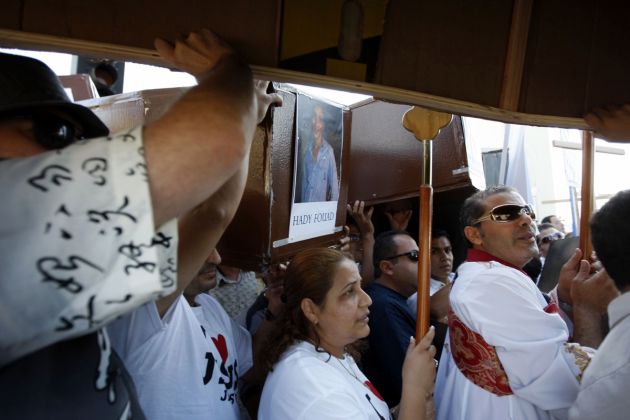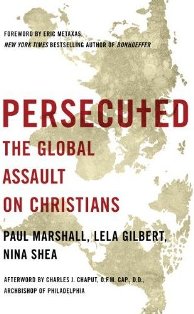Christian persecution is increasing and spreading, say book authors

The authors of a new book are seeking to draw the Western world's attention to the increased persecution of Christians in other parts of the globe with strong criticism of the way U.S. institutions deal with their plight.
In "Persecuted: The Global Assault Against Christians," fellows of the Hudson Institute, a policy research organization based not aligned to any political party in the U.S., tell of the daily lives of Christians who face opposition and danger because of their faith in Jesus Christ.
Paul Marshall, Lela Gilbert and Nina Shea have been making people aware of the abuse of Christians around the world for many years.

Christianity Today (CT) noted that they have long been active in drawing attention to the issue through media, books and public speaking.
The book is organized by the different regions where persecution occurs and its causes.
The authors say that the persecution of Christians is increasing in intensity and spreading, which is why they wrote the book.
That Christianity is the most persecuted religion in the world is not a secret.
The Pew Research Center and magazines such as The Economist and Newsweek have pointed this out.
However, in a forum introducing the book at the Hudson Institute, Marshall said that people in North America still do not know about the persecution of Christians elsewhere.
"There is very little awareness of what is happening around the world", he said. "And in some cases there is very little awareness of the existence of Christian communities in these places, in many places communities that are 2,000 years old."
The radicalization of Islam is the biggest reason why Christian persecution is growing, said Marshall. He said that extremist Islamic groups are exporting the persecution they are fomenting in their own countries.
"They are trying, with some success, to get other Muslim countries to get with their own program," he said.
In addition, Marshall indicated that individual Muslims who had not held extreme views before are now becoming radicalized.
Marshall, who has spoken before the U.S. Congress, the U.S. State Department and in other nations on the subject of radical Islam said that China has the largest number of persecuted Christians in the world.
However, he noted that they do not export their persecution.
The authors criticized the U.S. government for the way it has dealt with Christian persecution.
For example, during the forum Shea said that the administration of President Barack Obama had not done enough to help an American pastor, Saeed Abedini, imprisoned in Iran because of his Christian faith.
She said that she believes the reason that the U.S. has not helped Abedini is because of "misguided multiculturalism and political correctness".
Although Secretary of State John Kerry called for Abedini's release in March, Shea said he issued his statement during a dead media period and neglected to mention the primary reason for his captivity.
"He never mentioned that he is a Christian pastor or basically sentenced for apostasy," she said.
Marshall noted a double standard in U.S. policy toward Iran when it does deal with persecuted peoples.
He said that the State Department is reluctant to mention Christians who are persecuted within the country, but will single out Bahais who are harassed because of their religion.
Gilbert added that she believed that there is a lack of support in the west for persecuted Christians because of a discomfort with speaking against radical Islam.
Marshall also attacked the U.S. government for what he said is its mischaracterization of the conflicts between Christians and Muslims in Nigeria in Egypt.
He said the Obama administration calls these conflicts "sectarian clashes".
"No they're not," he asserted. "They're pogroms."
The authors did not limit their criticism of U.S. policy to the Obama administration.
Shea also said that the Bush administration was disingenuous when it came to the plight of Christians in Iraq.
He said she asked former Secretary of State Condoleeza Rice to speak out for them.
Two thirds of Iraqi Christians are believed to have been driven out of the country.
Shea said Rice told her that the U.S. could not get involved in sectarian affairs.
"Meanwhile, the United States had just installed a Shiite government in Iraq and was negotiating on behalf of Sunni leaders to get Sunni appointments in the government," she said. "So it just didn't ring true."
The authors also criticized the American Church for being insular and for its own political correctness.